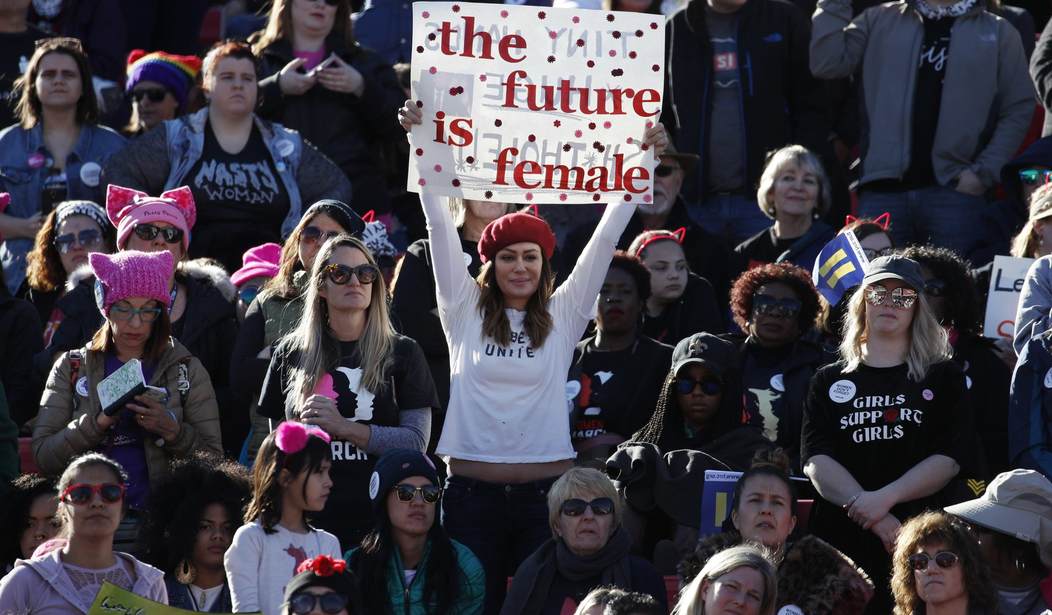In 2006, author Shelby Steele wrote the preeminent book “White Guilt” on how the promises of the Civil Rights movement were subverted, plunging our society into never-ending racial conflict and eroding our principles of liberty. I use this book as the basis of my thesis because everything Steele has written can be applied to feminism and the destructive effects of socially imposed Male Guilt.
For the past few weeks, our country has been embroiled in a battle for the Supreme Court. At the center is the honorable Judge Brett Kavanaugh, who has been accused of sexually assaulting a woman over 30 years ago when he was 17. The woman has no evidence to back up her claims, no legal authority has investigated, and the witnesses she has brought forward have as little proof of sexual assault as she does.
Despite this, the clarion call of Democrats has been, “Believe the woman.” Why? Because men do, in fact, sexually assault women. Because America has a marred past of sexual oppression. Because human history has stood witness of patriarchal abuses that still affect women in many parts of the globe today.
None of these claims can be denied. Men admit it — this admission brought about the Sexual Revolution — and this admission has led to their loss of moral authority. Even if an individual man isn’t guilty, he’s still guilty because of historical patriarchal abuses and inherent association with other men who have in fact abused women. This “male guilt” results in their stigmatization and delegitimization.
Let me turn to Steele to unpack my thesis, using his wording but replacing racism with “sexism,” whites with men, and blacks with women, as well as rewriting circumstances regarding racism and applying them to those that led to the rise of feminism and “angry women”:
A free society like the United States is built on principles of equality, individual rights, equal treatment under the law, etc. These principles undergird the moral authority of America’s institutions. However, our history has violated these principles as they apply to women. For centuries male Americans presumed that the patriarchy, or male supremacy, was a self-evident divine right, so freedom’s discipline of principles did not apply where women were concerned.
Over time, this lapse of democratic discipline undermined the moral authority (interchangeable here with legitimacy) of the American democracy and its institutions. The Women’s Liberation Movement and Sexual Revolution disciplined America with democratic principles, establishing the point that one’s sex could not deny one’s rights as an individual. In democracies, moral authority is always one’s own responsibility (not a divine or ideological right) — and it can be earned only through fidelity to principle.
A vacuum of moral authority is formed in our society from simply knowing that one’s sex is associated with sexual abuse, oppression, and sexism. Men (and American institutions that have been dominated by men) must acknowledge historical sexism to show themselves redeemed of it, but once they acknowledge it, they lose moral authority over everything having to do with sex, equality, social justice, and so on.
They step into a void of vulnerability. The authority they lose transfers, not to the principles that determine rights for all — which should have been the result of Women’s Liberation — but to the “victims” of historical sexism. This socially derived authority becomes those victims’ great power, a club to use at their whim. This is why male guilt is quite literally the same thing as female power — and power is what feminism hungers for.
Because male guilt is a vacuum of moral authority, it makes the moral authority of men and the legitimacy of American institutions contingent on proving a negative: that they are not sexist, that they are not sexual predators, that they are not rapists. This is an impossible effort, for one cannot prove a negative, hence the democratic principle of innocent until proven guilty.
The great power of male guilt comes from the fact that it functions by stigma, like sexism itself. Men and American institutions are stigmatized as sexist until they prove otherwise. Fear of stigma is behind the now clichéd male disclaimer: “I’m a male feminist. I show up at the Women’s March lockstep with the sisterhood. I’m pro-choice. I automatically believe that women who accuse men of sexual assault are telling the truth.” This is another way of saying, “I might be a man, but I am not a sexist, because I support feminist causes and I always believe women.”
In Marxist fashion, the feminist movement has developed a kind of special consciousness about sexism. Modern feminists believe that the world constantly tells lies to the oppressed — to women — and to survive oppression, a woman must not only be “woke” to those lies but also nurture a deeper awareness of the world and who men really are — inherently sexist.
This existential and subversive awareness of the “real” world is wokeness, a call to action. And the one who is woke is a kind of existential hero who preserves her humanity (amidst her oppression) by seeing through to the irony and absurdity of her situation. This is the frame of the feminist debate. It fuels the common argument that sexism is “systemic,” “structural,” and “institutional.”
In other words, ugly human prejudices like sexism did not just remain in the hearts of sexists. These dark passions work by an “invisible hand” to generate society structures that impersonally oppress. Anyone who conforms to mundane standards of social decency — such as presumption of innocence, the rule of law, meritocracy, free markets — executes bigotry and shapes society around it without necessarily feeling animus toward women.
This is why women can play the sexism card at every turn. It works by the mechanisms of global sexism: even a hint of sexism proves the rule of systemic sexism. Men, and any institutions dominated by men, never pay to the measure of any actual sexism or sexual abuse; they pay to the measure of sexism’s hyped-up and bloated reputation in the age of male guilt.
Just as it is with racism and white guilt, the more men give into being guilty of this “global sexism” simply because they have admitted actual sexism in the past or to individual cases of sexism in the present, men will always be sexists. They will always be guilty without hope of being proved innocent. Female rage will continue, and a destructive ideology — not principles of liberty — will hold the high ground, forever waving the flag of moral authority.









Join the conversation as a VIP Member